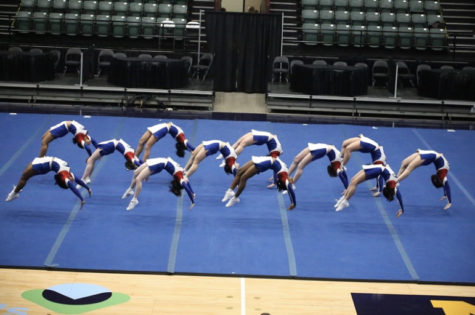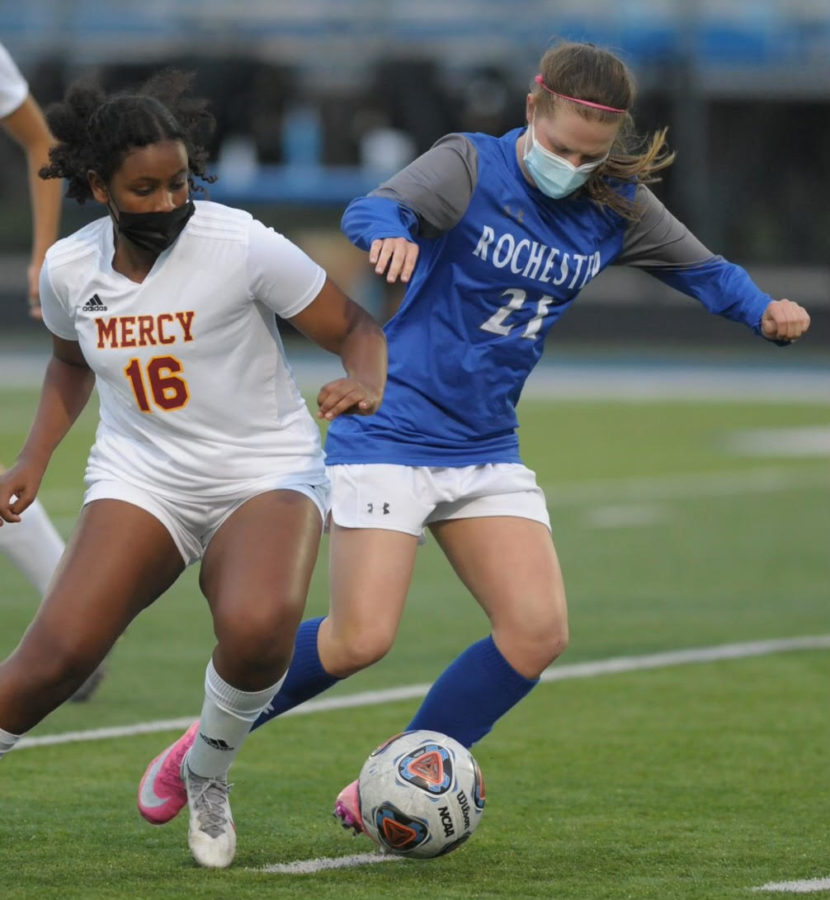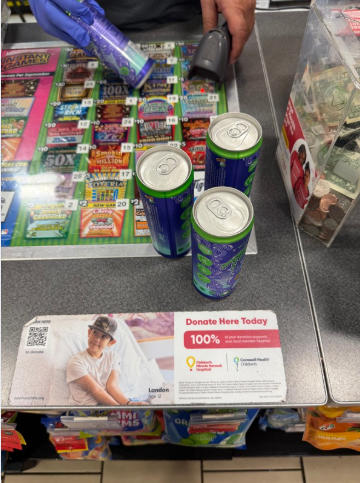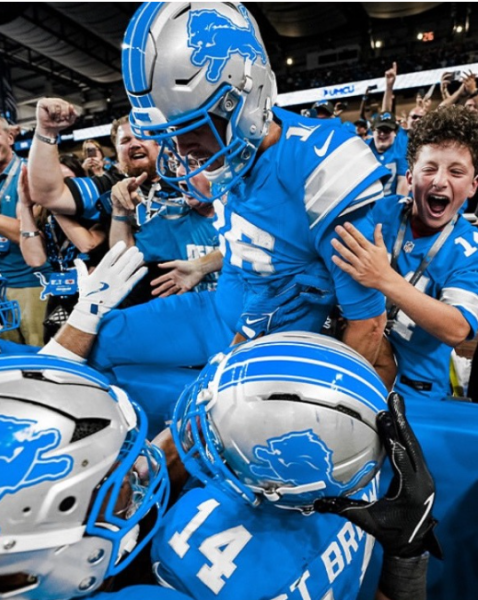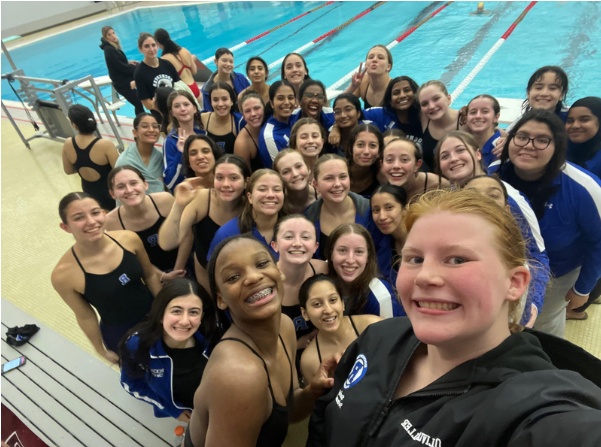Involvement in youth sports improves mental health
The life lessons, experiences and friendships from playing sports
February 17, 2022
Playing a childhood sport is an essential part of growing up for most, so many have been involved in at least one sport at some point in their childhood. However, with the growing demand for perfect performance, many youths have fallen out of sports.
A common claim goes around that sports have a negative impact on one’s mental health due to strict coaching or the expectation to perform well over having fun. However, according to many student athletes, getting involved in sports in one’s childhood or teenage years presents more benefits than drawbacks.
Part of what makes sports special is that they allow people to meet new friends who they share common likes with.
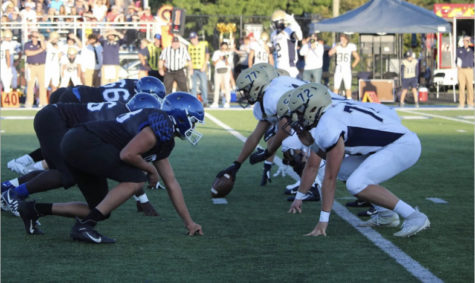
“Some of the best friends I have to this day are people that I was on a team with when I was younger,” senior varsity soccer player Gabrielle Chamberlin said. “Growing up and growing to love a sport with someone or a group of people is such a powerful thing and when you are able to share that experience with other people there is nothing better.”
Being involved with a team works to build a sense of community and work together to accomplish a goal.
“When students are part of a group that is working toward a common goal, they are often eager to show a coach or teammate that they are contributing in a positive way,” Coach Wood said. “So while they are improving characteristics such as motivation, commitment, and work ethic, they are actually learning many of the same characteristics that good leaders have.”
Additionally, playing sports can teach youth essential life skills that they can carry with them through adulthood.
“Participants learn cooperation, perseverance, persistence, attention to detail, to budget time and set priorities, to multitask, to problem solve, to set short-term and long-term goals, and to be motivated and a self-starter,” varsity cheerleading coach Susan Wood said.
Exercise and working out is a strenuous activity for many, but it does have a positive effect on the brain.
“When a person partakes in physical activity, they produce a hormone called endorphins,” health teacher Mrs. Amy Oppat said. “This helps a person feel better, more relaxed, and reduces stress. Regular physical activity can help a person sleep better, which is also beneficial to our ability to manage stress and anxiety.”
By producing these endorphins in humans’ brains, physical activity is seen to improve mental health and provide an outlet for athletes to manage stress.
“Whenever I’m frustrated or stressed out about something it always helps to do something physical, like go for a run, play some soccer, or take my dog for a walk,” Chamberlin said. “It helps me to level off my mood.”
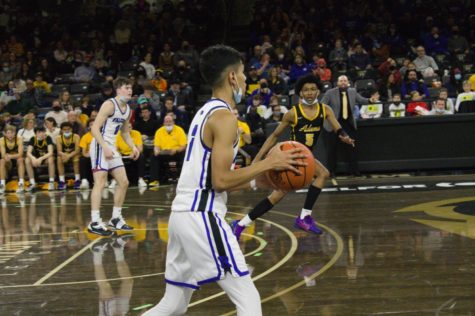
Moreover, sports are very reflective of real-life situations. Being on a team can prepare an individual for what it will be like to work with a team of people, or even within a household.
“When you go out in the world, you are a part of something much bigger than yourself,” Coach Wood said. “On a sports team, the team comes before the self. Being on a team teaches you to be a smaller piece of something bigger, more important, than you.”
Being successful within a performance or a game is a different experience for each athlete, but many athletes know what it’s like to have a rewarding feeling.
“After a workout, I usually feel tired, but accomplished and motivated,” senior cross country and track runner Allison Gadlage said. “It is satisfying knowing you have completed something that is good for your body and also calms your mind.”
As hard as working out can be, the feeling of post-workout achievement not only helps one to feel better physically but also mentally.
“It gives you a sense of accomplishment and makes you feel good about yourself,” Chamberlin said. “I also like the feeling that I’m getting stronger or working towards a goal. I might be exhausted and ready to take a nap, but there is satisfaction in knowing that you did your best. It’s even better if you have someone there pushing you to do your best or go that extra mile because it holds you accountable to do your best.”
For some, getting exercise can seem like the best activity in the world, while others despise it. Either way, getting too much exercise or too little can both have negative effects.
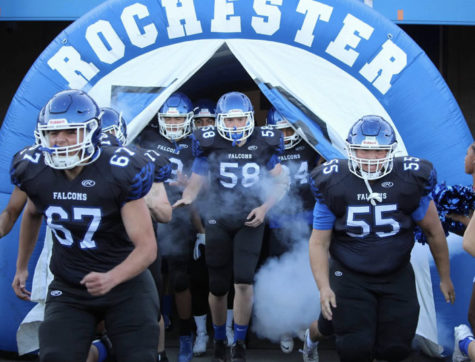
“The general rule of thumb for the amount of activity each person should get is approximately 30 – 60 minutes most days per week,” Mrs. Oppat said. “If a person exercises too much, they may increase the risk of injury, muscle/joint pain, slowed recovery time, fatigue and dehydration. Additionally, when something takes up a large quantity of our free time, it may cause an imbalance of other responsibilities in our daily lives.”
There will be bad, frustrating practices within any sport, but athletes can’t let a few bad days deter them from an entire successful season if they wish to get the best experience.
“The best kind of reward is something that only you can do for yourself, not something your parents can do for you,” Coach Wood said. “It’s not supposed to be easy, life isn’t supposed to be easy. We should not be avoiding uncomfortable and stressful situations completely. I’m still kind of old school, but you need to be pushing yourself a little bit harder, challenging yourself a little bit more, to whatever you think your comfort level is, and parents need to let that happen to produce a stronger, young adult.”
Allowing student athletes to experience winning can help to create a driven and motivated individual. When an athlete loses a game or isn’t satisfied with their performance, they learn to make self-improvements in order to have a more successful outcome in the future.
“Sports can teach ways to deal with disappointment and stressful situations,” Coach Wood said. “Athletes have many ups and downs and are constantly learning how to put negative instances into appropriate perspectives. Being shielded from unhappiness in life can have dangerous results. Athletes have multiple opportunities to deal with tough situations in a controlled environment. Tough kids turn into successful adults.”
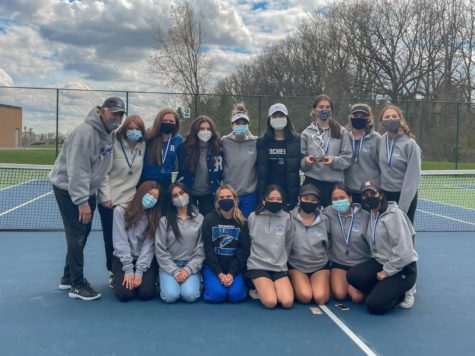
Sports can become stressful at times; it’s not going to be a completely positive practice every day, but it still gives athletes something to look forward to in their daily routines.
“[Sports make me] more stressed, but in a good way,” varsity basketball player Connor Cracium said. “It’s like having an extra class per day, but an enjoyable class that lets you work with other people towards a common goal: to win.”
Although playing a sport is another thing to add to one’s daily schedule, which may make it harder to manage time, the physical benefits and support of a team outweigh any schedule sacrifices.
“Sports can make me feel more stressed knowing I have things to do, and that is another activity taking up time in my day, but honestly, I feel that they make me a happier person,” Gadlage said. “I love going to run and talk to my friends, and find peace in the routine. There is always someone to talk to, and team bonding is something I greatly enjoy. Overall, due to sports, I feel that I have less stress.”
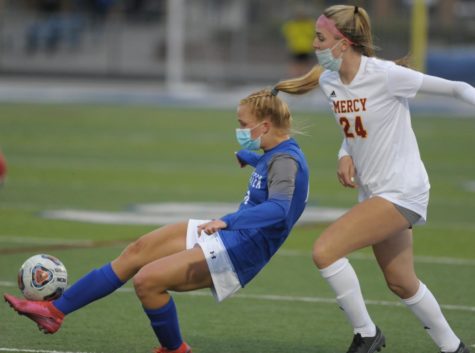
Playing a sport in high school has a different effect on an individual rather than playing a sport as a child. Although the stakes may be higher, the relationships are stronger and the life lessons are more abundant.
“When athletes return to a team as upperclassmen, they naturally want it to be a great season, so they put much effort into teaching, nurturing, motivating, and inspiring the new members of the team,” Coach Wood said. “They almost unknowingly pass down procedures, traditions, and philosophies of that team, and even start to sound like the coach. The coach gains a lot of leaders who can help train the underclassmen, and the returning athletes gain confidence in themselves and feel great about the fact that they’ve ‘been there’ before.”
Student athletes advise anyone who is considering joining a sport to take the risk. You never know how many benefits, life lessons, and everlasting friendships that can come out of joining a team.
“I’m surprised at how many parents would rather have their kids not be involved, whether that be because they don’t want to pick them up after practice or because they think it’s too stressful, when in fact putting kids in a little bit of an uncomfortable situation is not a bad thing,” Coach Wood said. “Being a little bit more uncomfortable is more realistic to real life. Truthfully, stressful situations are not a bad thing. We need to stop thinking it’s a bad thing. It’s very valuable to be in an uncomfortable situation. Comfort and growth do not co-exist. You cannot grow if you don’t go through a little discomfort, in any situation in life.”
